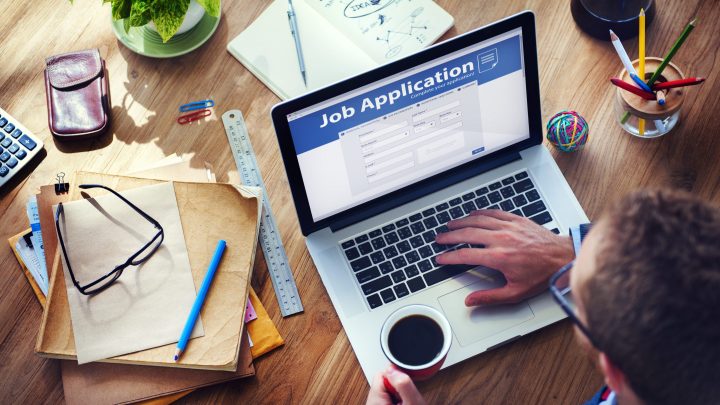
ChatGPT makes job applications a breeze — that’s the challenge
ChatGPT makes job applications a breeze — that’s the challenge

It’s been about a year since OpenAI’s ChatGPT burst onto the scene. In that time, there’s been a lot of both exuberance and hand-wringing about how generative artificial intelligence tools like chatbots could change work as we know it. Starting with how we get that job.
A survey from ResumeBuilder this year found that almost half of job seekers were already using ChatGPT to generate resumes and cover letters. And those who did reported getting interviews at a higher rate.
The trend seems like a win for job candidates, but it could further complicate a hiring process in which bots already play a big, and sometimes problematic, role.
Cybersecurity engineer Evan Lutz is among the advocates of using the chatbot to assist job hunters. On a TikTok channel with 35,000 followers and counting, he shares a simple formula that he says can help anyone land a high-paying tech job.
“What I tell people is if you do this right, you can get a starting salary of $90,000 a year in 90 days,” said Lutz, who also has a Substack newsletter with about 20,000 paying subscribers and offers an $8,000 boot camp based on his experience jumping from a job teaching high school math to a cybersecurity career in 2019.
After job seekers gain the requisite certifications, he advises them on how to build a solid resume and recommends applying to at least 1,000 jobs. So you can see how automating some of that process would be key.
“Everybody’s trying to make the least impressive thing that they did look the most impressive,” said Lutz. ChatGPT’s tendency to embellish can come in handy there.
It could, for instance, transform my career as a public radio journalist into the perfect qualification for what I assume would be a job with fun perks: professional wine and spirits buyer.
After I found such a listing, Lutz instructed me to copy and paste the entire thing into ChatGPT.
“And then say, ‘Give me tips on how to specifically get this job,'” he said.
This is a sample of what the bot came up with:

“The next step would be ‘Write me a resume that would maximize my chances of getting an interview for this job,'” said Lutz. Then, he recommended asking ChatGPT to write my cover letter, come up with questions I might be asked in an interview and tell me the best way to answer those questions.
But this strategy can definitely backfire.
Fatemah Mirza is a career coach who sometimes uses ChatGPT with clients. But when she was hiring for a customer service position for her company, CareerTuners, she said some AI users were easy to pick out “because they accidentally copied their prompts into the answers too.”
That included one applicant who pasted an exchange that turned into insults. “He called the chatbot stupid,” Mirza said. “Like, ‘No, stupid, you need to do blah blah blah.’ He obviously didn’t get hired.”
Even when people use chatbots conscientiously, the bots make it so easy to apply to 1,000 jobs at once that it can be harder for an employer to narrow down candidates, noted Thomas Vick, a technology hiring and consulting expert at human resources firm Robert Half. “More and more candidates are applying,” he said.
Some employers have added steps to verify applicants’ skills in real time, like asking a candidate to demonstrate problem-solving on a whiteboard.
“They’re looking for kind of those checks and balances to be able to make sure this is a real person, this is really their background and they can really do the job,” Vick said.
Solving hiring challenges exacerbated by AI will likely involve more AI, according to Joseph Fuller, a professor at Harvard Business School who co-leads the school’s Managing the Future of Work initiative.
“You do get this kind of spy-versus-spy war,” he said, describing how applicants and employers are ratcheting up their use of the technology.
Many companies already use algorithmic applicant tracking systems to filter resumes. Marketplace’s parent organization, American Public Media Group, uses one — UKG.
Fuller said some employers are expanding into chatbot interviews or automated skills and personality assessments. This kind of AI tool can make the hiring process more objective and efficient, but “it tends to work against somebody who’s an outlier in any regard.”
Like a veteran journalist who might actually make a great wine taster? I’ll have my bot call your bot!
There’s a lot happening in the world. Through it all, Marketplace is here for you.
You rely on Marketplace to break down the world’s events and tell you how it affects you in a fact-based, approachable way. We rely on your financial support to keep making that possible.
Your donation today powers the independent journalism that you rely on. For just $5/month, you can help sustain Marketplace so we can keep reporting on the things that matter to you.











